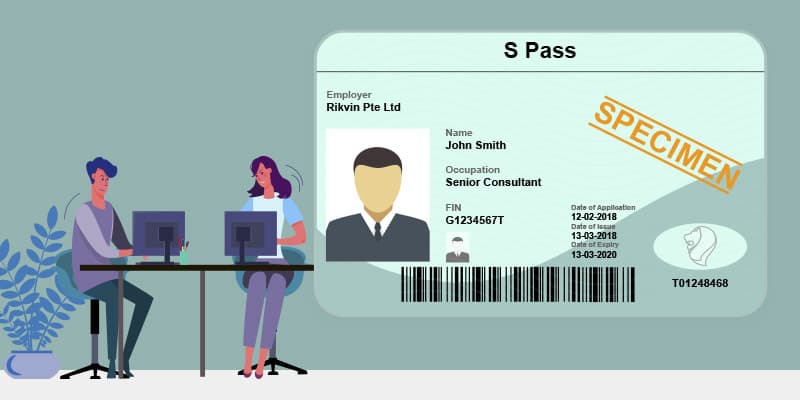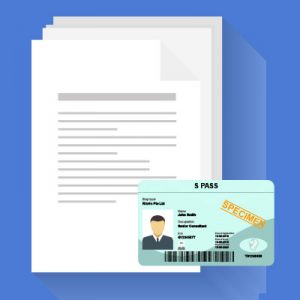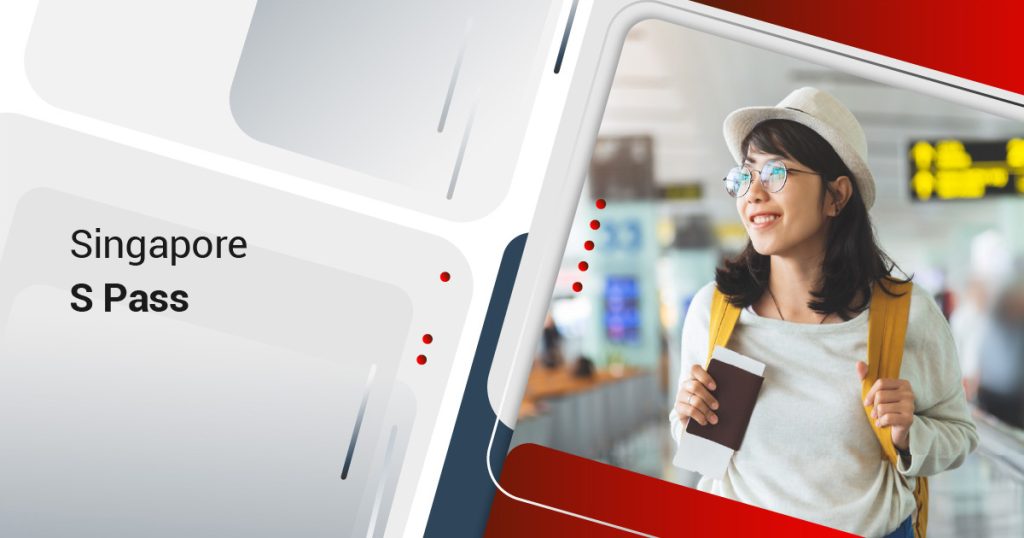
The S Pass is a type of work visa designed for mid-level skilled workers employed by companies operating in Singapore.
An application is assessed based on a point system with consideration for each of the following factors: salary, education qualifications, skills, job type, and work experience. Applicants (employees) must obtain employment or have an employer in Singapore before submitting their application.
The number of S Pass holders a company can employ is capped according to its industry’s Dependency Ratio Ceiling (DRC).
Validity of S-Pass
The S Pass has a validity of up to 2 years and is renewable as long as the pass holder remains employed in the company, subject to the prevailing conditions imposed by the authority at the time of renewal.
What are the Benefits of S-Pass
Applicants whose fixed monthly salary is at least S$6,000 may apply for Dependant’s Pass and/or Long-Term Visit Pass for their immediate family members.
Permanent Residence Eligibility
S Pass holders are eligible to apply for Singapore Permanent Residency. Applicants are advised to wait for at least 3 years before applying for Permanent Residence.
Eligibility Requirements

- New applicants must have a fixed monthly salary of S$3,150 or S$3,650 in the financial services sector (from 1st Sept 2023): Older and more experienced applicants are also expected to qualify under higher salaries, commensurate with their skills and work experience.
- Renewals must have a fixed monthly salary of S$3,000 or S$3,500 in the financial services sector (from 1st Sept 2023): Older and more experienced applicants are also expected to qualify under higher salaries, commensurate with their skills and work experience.
- Possess a degree, diploma, or technical/specialist qualifications: Candidates from the People’s Republic of China are expected to authenticate their qualifications from independent verification channels such as the China Higher Education Student Information and Career Center, China Academic Degrees & Graduate Education Information and Dataflow.
- Relevant work experience and skills.
Renewal Criteria
 Besides meeting the eligibility criteria, applicants need to take note of the following:
Besides meeting the eligibility criteria, applicants need to take note of the following:
- Holder’s passport must be valid for at least 7 months.
- Employer must have sufficient S Pass quota for your sector.
A decision on all applications are subject to the discretion of MOM.
Levy for S Pass Holders
| Tier | Sector Dependency Ratio (DR) | Levy Rate * | Daily Levy Rate * |
|---|---|---|---|
| Basic Tier / Tier 1 (Services) | ≤ 10% | $550 (from 1st Sept 2023) | $18.08 |
| Basic Tier / Tier 1 (Other Sectors) | ≤ 10% | $550 (from 1st Sept 2023) | $18.08 |
| Tier 2 (Other Sectors) | >10 to 15% (from 1st Jan 2023) | $650 (no change) | $21.37 |
* All information updated as of August 2023
People also ask
Who can apply for S Pass?
- An employer or appointed employment agent can apply on behalf of the applicant.
How do I renew my S Pass?
- To renew your S Pass in Singapore, you will need:
- To have a current passport valid for at least 1 year.
- For your employer to have a sufficient S Pass quota.
Why is S Pass rejected?
- If your application for a Singapore S pass is rejected, the Ministry of Manpower has probably declined you for not meeting one of the following criteria:
- Having a degree or diploma.
- New applicants earning at least S$3,150 per month or S$3,650 per month in the financial services sector (from 1st Sept 2023). There are some ways to get an S Pass without strictly meeting the criteria, for example, they might accept a technical certificate instead of a degree or diploma. If your S Pass application is rejected, you are best to talk to a registered Singapore service provider that can appeal your application to live and work in Singapore.
How many years can a foreign worker work in Singapore?
- There are several kinds of work permits in Singapore, all allowing you to work in Singapore for different amounts of time:
- The Singapore Work Permit for Foreign Workers is a 2 year, renewable visa for foreign semi-skilled or unskilled employees, like labourers, dock workers etc.
- The Singapore S Pass is up to 2 year visa for foreign, mid-skilled workers such as technicians.
- The Singapore Employment Pass is a 2 year (renewable up to 3 years) visa for foreign professionals, managers, and executives) wishing to work in Singapore.
- The Singapore Entrepreneur Pass is a 1 year (renewable up to 2 years) visa for foreign business owners who wish to move their business to Singapore.
- The Singapore Personalised Employment Pass (PEP) is a 3 year visa for foreign, top-tier executives, e.g. CEO, COO.
What are the most popular jobs in Singapore?
- As of June, 2019, the foreign workforce in Singapore is as follows:
- Employment Pass Holders (highly skilled executives) — 189,000 (13.5%)
- S Pass Holders (semi-skilled workers) — 197,800 (14.1%)
- Work Permit Holders (non-skilled workers) — 981,000 (70%)
- Other Work Pass Holders (other non-skilled workers) — 31,800 (2.3%) While semi-skilled and unskilled roles are the most common jobs in Singapore, there is a preference for those working in executive and managerial roles across all industries.



